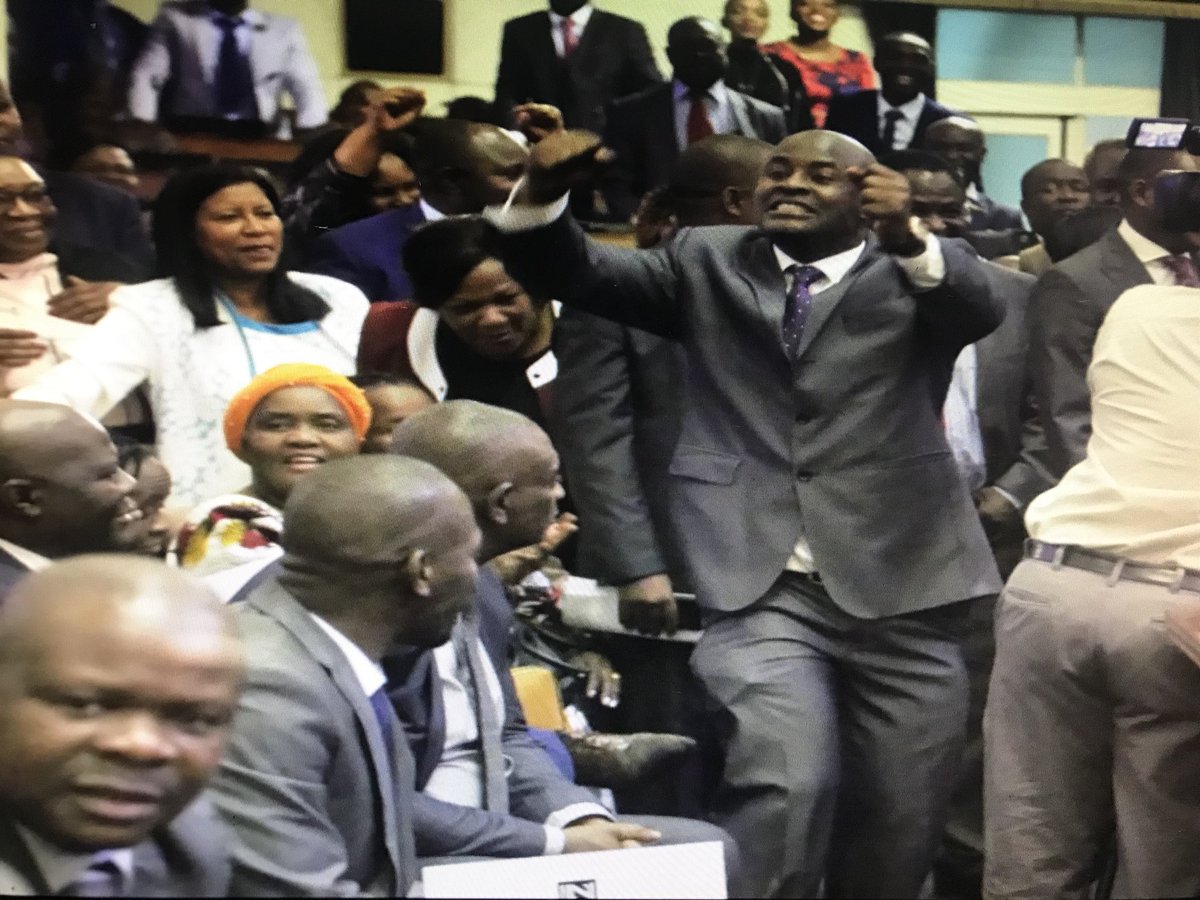Editorial
President Emmerson Mnangagwa today addressed both houses of parliament to mark the opening of the ninth parliament of Zimbabwe. The ninth parliament is an offspring of the harmonized elections that took place on 30 July 2018 following the expiration of the eighth parliament which subsisted from 2013.
This is the first such election after the departure of ex-president Robert Mugabe who reigned since independence from Britain. Noteworthy was that this was the first election using the SADC guidelines on democratic elections. These ushered in a new voter’s roll with biometric voter identifiers. The election proved to be the most peaceful and orderly election to come out of Zimbabwe.
In his address, the President set the legislative agenda for the house in order to align Government’s development thought with the legislature. Also in attendance was the judiciary, an important arm of the Government triumvirate. Representing the executive arm of Government were newly sworn cabinet ministers who were led by VP Kembo Mohadi.
Key deliverables the President pronounced in his speech were the need to align the laws to the new constitution, which he said was, “work in progress,” animating the provincial councils born out of the desire to devolve Government authority to provinces, setting the tone to achieve a middle income economy by 2030 and stabilizing the economy out of its current challenges riding under a wave of illiquidity and foreign currency inadequacies.
In his opening address, President Mnangagwa praised the citizenry for their contribution towards the peace dividend enjoyed before, during and after the election but singled out the violence that broke out on August 1, an event he described as unfortunate. He encouraged parliamentarians that, “We should all commit to the rebuilding of the country in unity and love.” To this end, the President assembled a Commission of Inquiry led by former president of South Africa, Kgalema Mothlante to investigate the violence and bring recommendations for sustainable peace and healing thereafter. He will be swearing in the commissioners on September 19, 2018.
The President stressed the need for the stabilization of the economy before bringing in a local currency to replace the multi-currency basket currently in use. He said the decision to introduce a local currency has to be based on, “a sound and stable economy.” The Zimbabwean Dollar was put down by hyperinflation in 2009 following the stinging sanctions illegally put against Zimbabwe by the USA.
The President opened up on a $500 million foreign currency stabilization facility which will be drawn this week to bring liquidity into the economy.
The President challenged public servants to improve their work ethic which he said must be without dishonesty, truancy and corruption. Alongside the Civil Servants, the President also encouraged the civil service to improve Government’s ease of doing business with its publics and produce profit and value out of public entities. He warned that public entities that fail to carry their own weight will be folded because the country could not afford to nurse entities that drain the national purse.
On the legislative side, the President told lawmakers that the executive was inviting them to enact laws that will aid in the realisation of national aspirations, some of which include the protection of the vulnerable communities and persons. The President told the house of the need to introduce at least twenty bills with a view to moulding them into pieces of law. The majority of these bills fall into social protection laws seeking to protect the disadvantaged, among them, children and women, while other bills aim to protect the economy from unwanted but known shocks as well as animating devolution.
Also in the hands of the legislature will be the need to amend certain pieces of legislation in order to meet the requirements of the Second Republic.
The Southern African Parliamentary Support Trust (SARST) executive director John Makamure said it was incumbent upon the parliamentarians, both new and old that they read and understood the requirements of parliament so that they debate the law making process from an informed viewpoint. He said parliamentarians were a representative of multitudes of people who could not be in parliament, hence the need that they be well read individuals who can have that varied representative capacity to a people with varied viewpoints, needs and aspirations.




